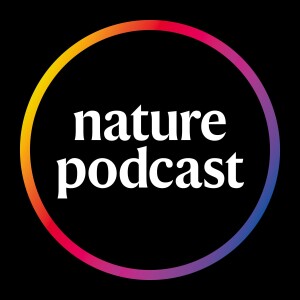The self-supporting structures that snap into place, and how a ban on fossil-fuel funding could entrench poverty in sub-Saharan Africa.
In this episode:
00:45 Self-supporting, foldable structures
Drawing inspiration from the art of origami, a team of researchers have demonstrated a way to design self-supporting structures that lock into place after being inflated. The team hope that this technique could be used to create arches and emergency shelters that can be quickly unfolded from flat with minimal input.
Research Article: Melancon et al.
News and Views: Large-scale origami locks into place under pressure
Video: Origami-inspired structures could be deployed in disaster zones
07:32 Research Highlights
Nocturnal fluctuations cause scientists to underestimate rivers’ carbon emissions, and the ‘island rule’ of animal size-change is seen around the world.
Research Highlight: Rivers give off stealth carbon at night
Research Highlight: Animals around the world follow the ‘island rule’ to a curious fate
09:55 Banning fossil-fuel funding will not alleviate poverty
A ban by wealthy nations on the funding of overseas fossil-fuel projects would do little to reduce the world’s climate emissions and much to entrench poverty in sub-Saharan Africa, argues economist Vijaya Ramachandran.
World View: Blanket bans on fossil-fuel funds will entrench poverty
17:17 Briefing Chat
We discuss some highlights from the Nature Briefing. This time, the first powered flight on another world, and estimating how many Tyrannosaurus rex ever lived.
News: Lift off! First flight on Mars launches new way to explore worlds
Video: Flying a helicopter on Mars: NASA’s Ingenuity
News: How many T. rex ever existed? Calculation of dinosaur’s abundance offers an answer
Subscribe to Nature Briefing, an unmissable daily round-up of science news, opinion and analysis free in...
See acast.com/privacy for privacy and opt-out information.
More Episodes
Sea squirts teach new lessons in evolution
 2021-11-17
2021-11-17
Coronapod: new hope from COVID antiviral drugs
 2021-11-12
2021-11-12
The past and future of the Earth's climate
 2021-11-10
2021-11-10
Audio long-read: How dangerous is Africa’s explosive Lake Kivu?
 2021-11-08
2021-11-08
Podcast special: onboard the climate train to COP26
 2021-11-03
2021-11-03
China’s COVID vaccines have been crucial — now immunity is waning
 2021-10-29
2021-10-29
Genomics unwraps mystery of the Tarim mummies
 2021-10-27
2021-10-27
Coronapod: can scientists harness COVID super-immunity?
 2021-10-25
2021-10-25
Viking presence in the Americas pinpointed by ancient solar storm
 2021-10-20
2021-10-20
Coronapod: the COVID scientists facing violent threats
 2021-10-18
2021-10-18
How electric acupuncture zaps inflammation in mice
 2021-10-13
2021-10-13
Coronapod: new data affirms the benefits of air filters and masks
 2021-10-10
2021-10-10
The AI that accurately predicts the chances of rain
 2021-10-06
2021-10-06
Starting up in science: behind the scenes
 2021-09-29
2021-09-29
Starting up in science: Episode 4
 2021-09-29
2021-09-29
Starting up in science: Episode 3
 2021-09-29
2021-09-29
Starting up in science: Episode 2
 2021-09-29
2021-09-29
Starting up in science: Episode 1
 2021-09-29
2021-09-29
Audio long-read: Can artificially altered clouds save the Great Barrier Reef?
 2021-09-27
2021-09-27
Coronapod: solving the COVID vaccine manufacturing problem
 2021-09-25
2021-09-25
Create your
podcast in
minutes
- Full-featured podcast site
- Unlimited storage and bandwidth
- Comprehensive podcast stats
- Distribute to Apple Podcasts, Spotify, and more
- Make money with your podcast
It is Free
- Privacy Policy
- Cookie Policy
- Terms of Use
- Consent Preferences
- Copyright © 2015-2024 Podbean.com




 iOS
iOS Android
Android


